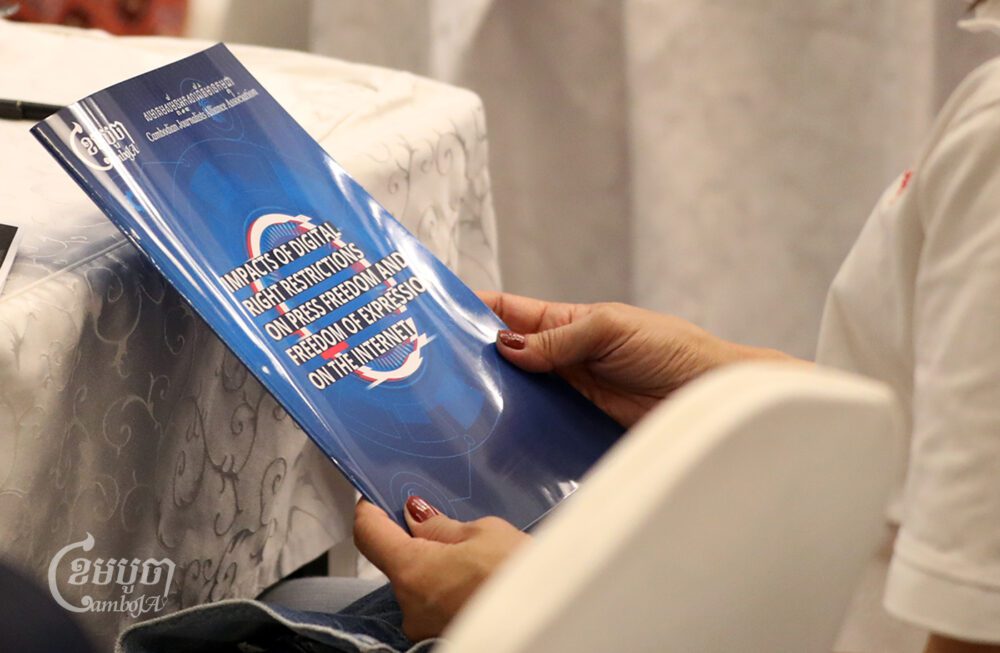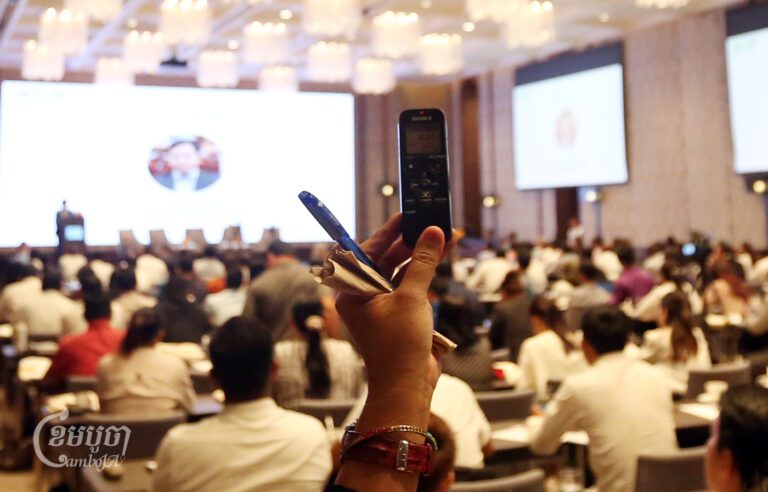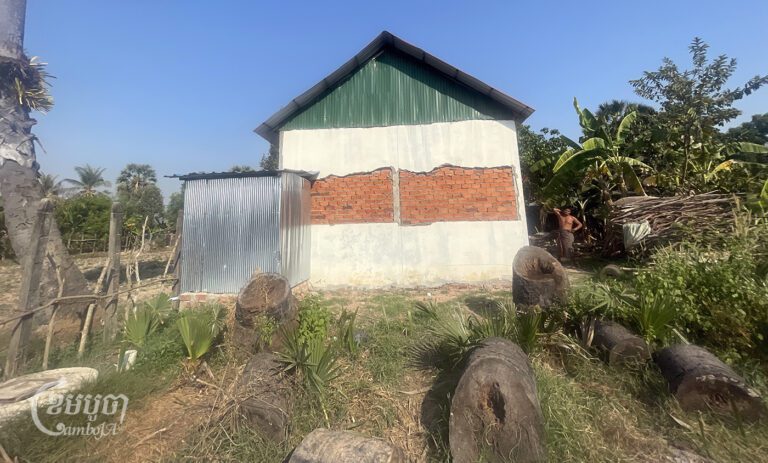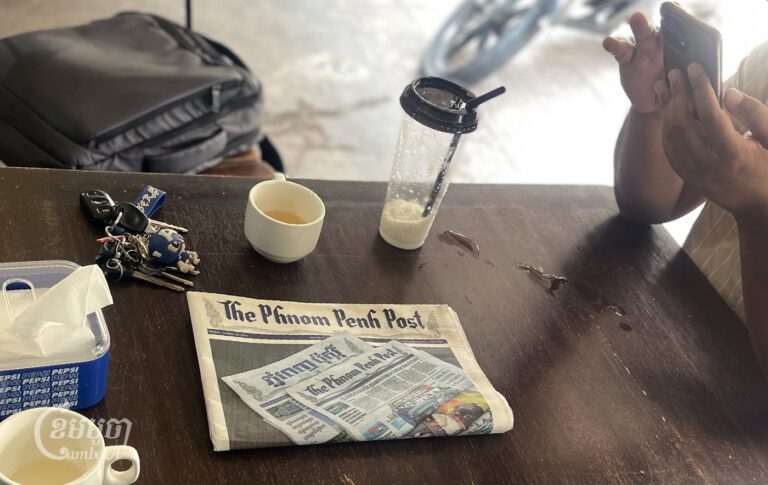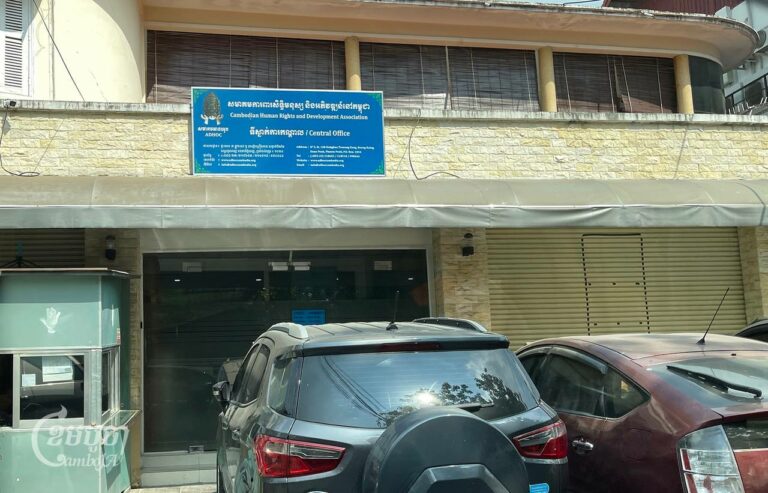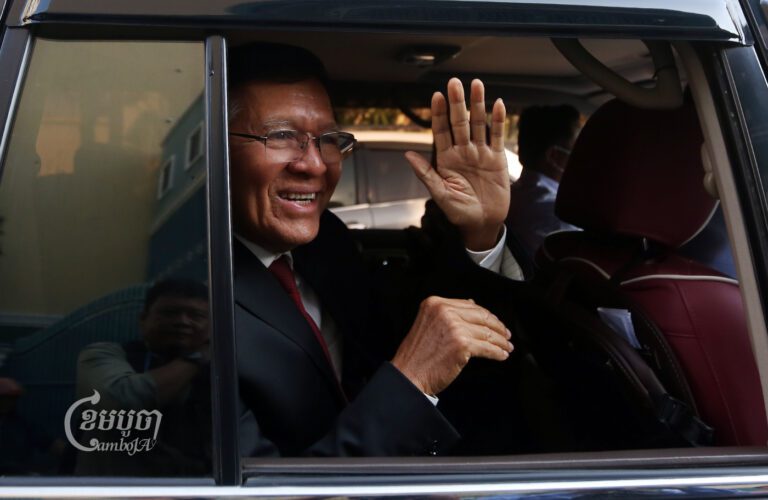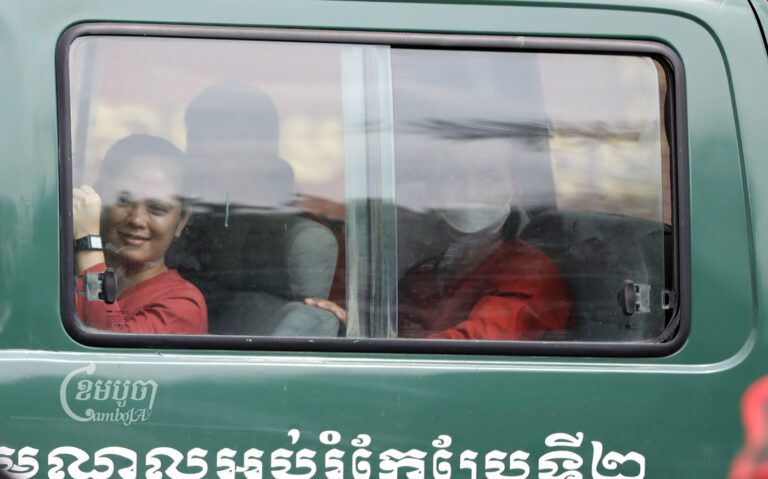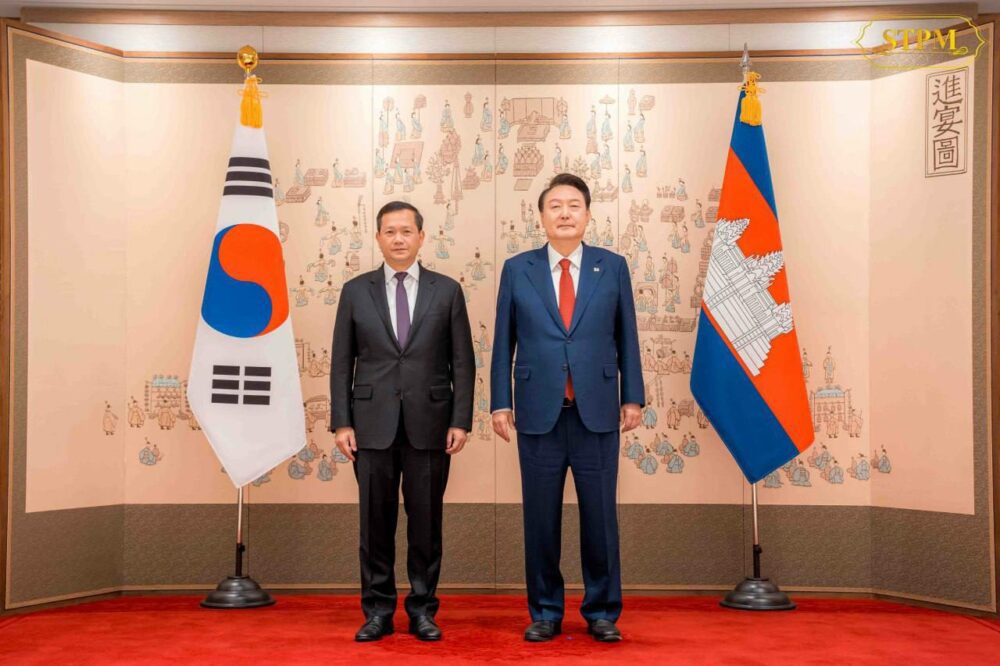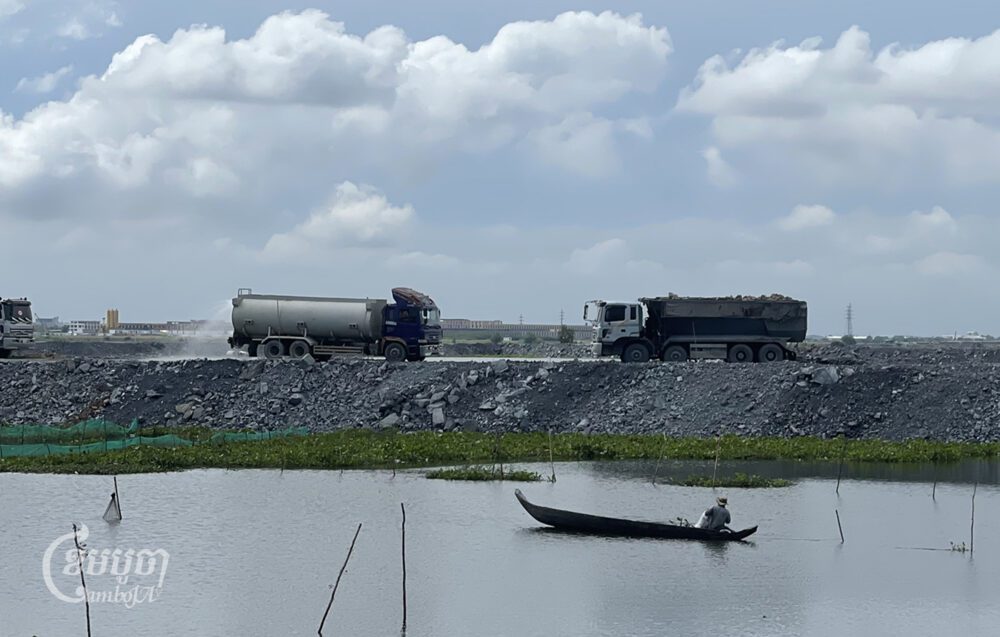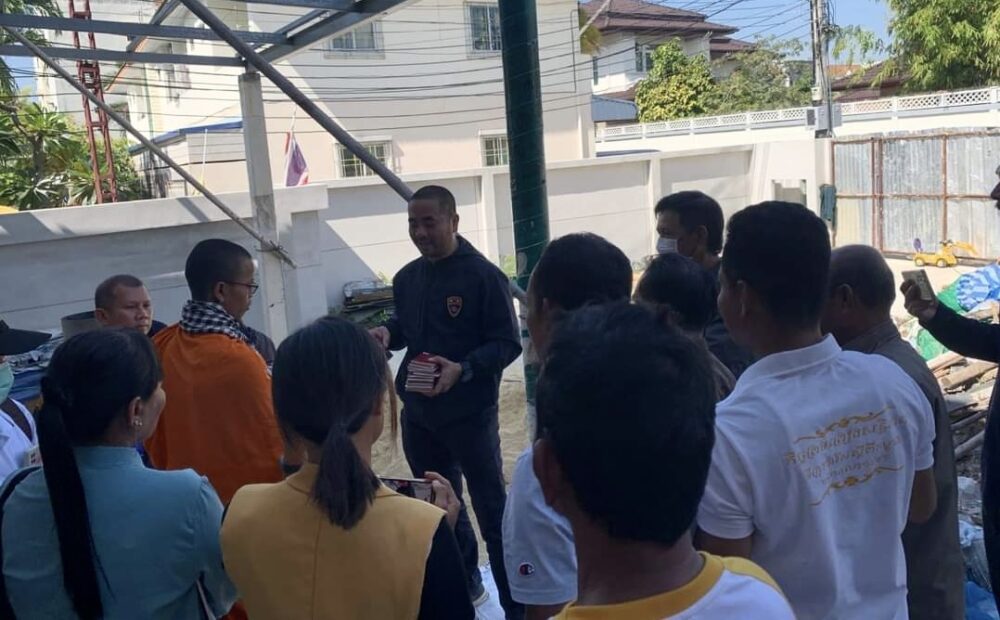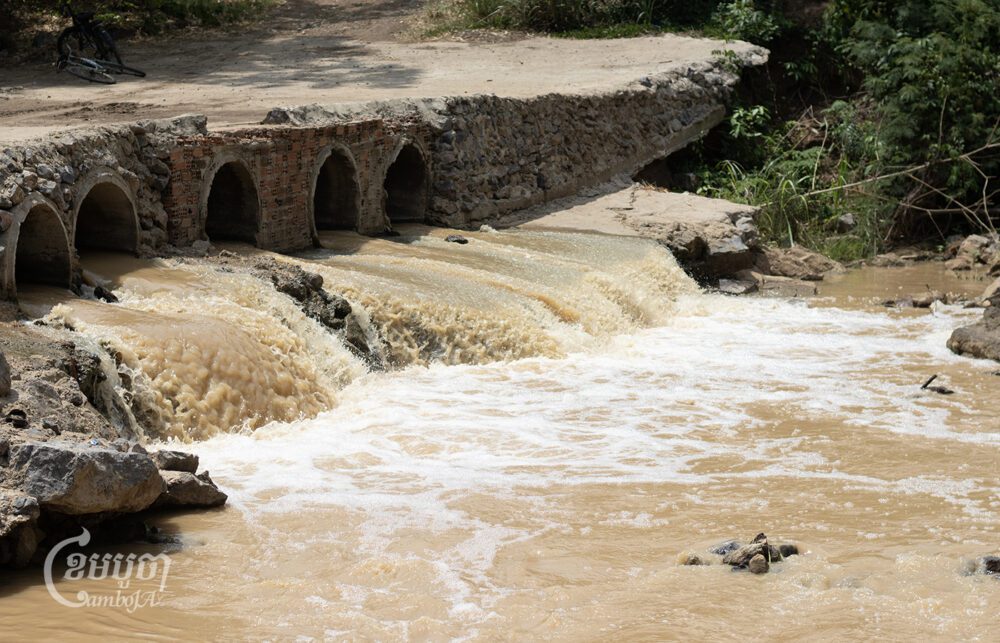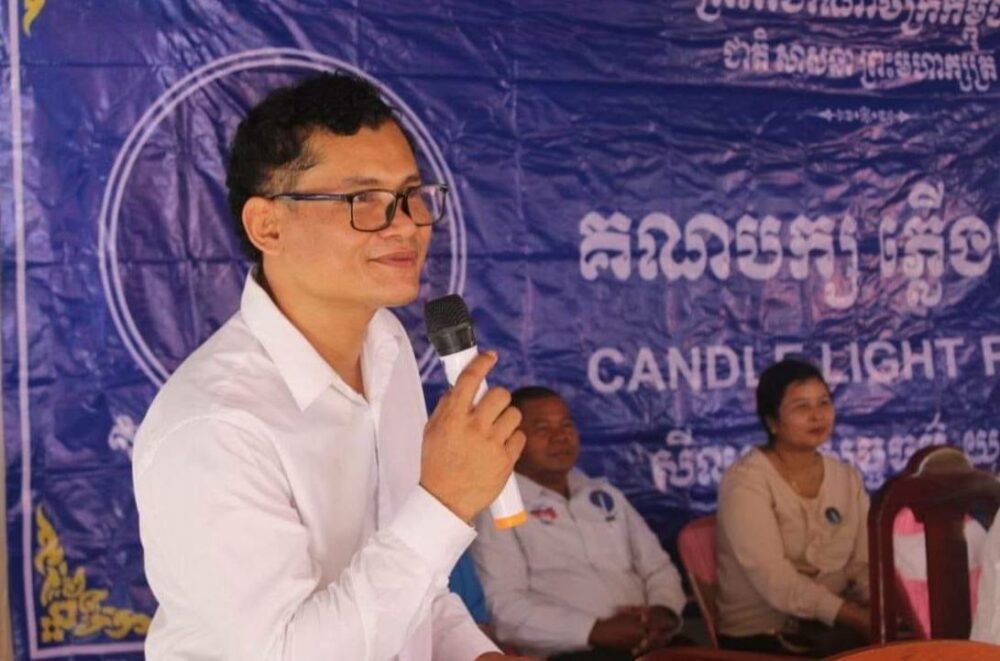Cambodian Journalists Alliance Association (CamboJA) has released a report on the restrictions to digital rights and freedom of expression in Cambodia, noting that the government is monitoring journalists and citizens who exercise their right on the internet.
The report titled “Impacts of Digital Right Restrictions on Press Freedom and Freedom of Expression on the Internet”, which was launched on Thursday, revealed widespread concerns about internet security, lack of internet freedom, security threat leading to self-censorship, distrust of Internet Service Providers (ISPs), and government surveillance surrounding internet usage and restrictions in Cambodia.
A majority of the respondents agreed that the government uses legal tools to curtail internet activity, and the potential negative implication of the National Internet Gateway on freedom of expression on the internet.
“They expressed fear of escalating personal safety and security threats stemming from online activities, influencing comfort levels and perhaps leading to self-censorship, particularly when it comes to disseminating politically sensitive information,” read the report.
The government is taking steps towards monitoring the digital landscape through its Digital Government Policy 2022-2035, where the goal of the policy is to fast track digital legislation in a manner that is fair and transparent, it added.
CamboJA executive director Nop Vy, called on the relevant parties, especially the government, to safeguard Cambodian citizens’ digital security and respect their freedom of expression on the internet.
While the internet is a place where information is shared and easily accessed, it can also infringe the fundamental rights and freedom of Cambodians as their privacy has been invaded, he said.
“We hope that our report [digital rights] would drive the relevant ministries to respond to the concerns [of those] who were interviewed in the survey,” Vy said.
When contacted, government spokesperson Pen Bona refuted claims that journalists were tracked on the internet or that their usage online was restricted in Cambodia.
“The government has no time to monitor citizens or what journalists say. Everyone has the freedom [to express themselves] while the government has [other] work to do,” he said.
He said every social media user is responsible for their actions online, whether it affects others, is a violation of the law or is unethical, while people who have been defamed or implicated have the right to seek justice through legal means.
Presently, Bona said, many people have voiced their intent to stop using Facebook because whenever they open it, they only see wasteful content such as people talking about their feelings, making jokes or hurling insults on others.
“This shows abundant internet freedom. What else does CamboJA want about freedom?” Bona said, adding that the draft law on anti-cybercrime does not restrict people’s rights or freedom.
“Citizens who hate all forms of cybercrime demand that the government have a law and take action against criminals. Why are you against this law?” he said.

In the 2023 World Press Freedom Index, Cambodia ranked 147 out of 180, falling five spots from 142 in 2022, according to Reporters Without Without Borders, which mentioned that “governmental persecution of independent media has intensified”. This was particularly evident in the run-up to the elections earlier this year, it said.
In January 2021, the rate of internet penetration in Cambodia was 52.6%. This marks a 14% increase in online users compared to 2020.
While Cambodia’s population is about 16.18 million people in 2023, the Telecommunication Regulator of Cambodia reported 18 million internet users as of September 2022, which is a drop from 20 million users in 2020. Most of them utilized communication platforms like Telegram, Signal, WhatsApp, Facebook Messenger.
Survey questions were sent by the research team to 200 registered independent journalists across Cambodia, where 65 journalists participated, representing 32.5% of the target population. The survey was sent via various messaging platforms including WhatsApp, Signal, and Telegram.
In addition, the research team conducted group discussions with 15 individuals known for their involvement in citizen journalism, environmental activism, and human rights advocacy, as well as interviewed six individuals from the government.
Based on the data, nearly half the respondents (45.6%) agreed that the government monitors “freedom of expression”, while 47.4% of the journalists were suspicious of the use of legal tools to restrict their work online.
Some 23.6% of the respondents mentioned that they did not feel entirely safe when using the internet in Cambodia while 19.3% of those surveyed asserted that they do not feel safe at all doing sensitive work online.
The report underlined that journalistic independence in Cambodia is “highly limited” in that there is little diversity of media, and only a few independent media outlets continue to operate in Cambodia, including CamboJA News and VOA. This follows the government’s shuttering of independent media outlets and the loss of editorial independence in newsrooms, which has caused a significant change in Cambodia’s media landscape.
“The remaining independent media organizations are often small, and lack the resources of larger organizations.”
“To be clear, the concerns of independent journalists with regards to the monitoring by authorities is legitimate. Reporting on controversial topics, like land disputes and deforestation, still carried with it a massive risk,” it continued.
Both Post and Telecommunications Minister Chea Vandeth and So Visothy, ministry secretary of state, could not be reached for comment.
Meanwhile, Information Ministry spokesperson Tep Asnarith, who echoed Bona, said people have always had freedom to express themselves, as seen in the voicing of their opinion, including “those who published this report”.
“This publication is intended as a rhetoric under the political agenda of disseminating information that does not reveal the truth in Cambodia, while millions of Cambodians clearly know that they have full freedom to use any means, including freedom to access information on the internet,” he said.
Asnarith said freedom of the press and exercising one’s right to information in Cambodia have always been promoted by the government from one mandate to another, notably in this seventh mandate. The Information Ministry and other ministries, and institutions are paying attention to press freedom.
Freedom of speech is increasingly better, he added, pointing out that journalists are protected and offered legal support, with capacity building activities carried out to enhance the quality of the media in Cambodia.
According to CCHR’s 2022 annual report on Cambodia Fundamental Freedoms Monitor, authorities continue to use legal procedure and criminal sanctions against citizens and journalists, fundamentally limiting their right to exercise freedom of expression online.
In 2022, there was a decrease to 45% in the restriction on all forms of online expression, compared to 2021. Of the 58 cases that were recorded in the report, 34 were counted as violation of online expression rights, while 24 were considered restrictions of online expression rights.
It urged relevant parties, especially the government, private sector, and ISPs, to “stop targeting” government critics, journalists, citizen journalists, human rights defenders, and social media users through arrests, threats, and various forms of harassment and intimidation.
It also asked the government to revoke the sub-decree on the establishment of the National Internet Gateway, which it said was a “government-controlled internet checkpoint that directs ISPs to route all internet traffic”, and monitor online activities, making it easier to block content and webpages.


